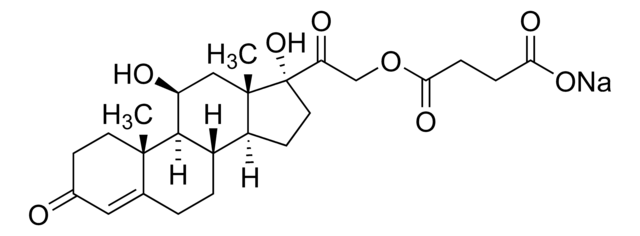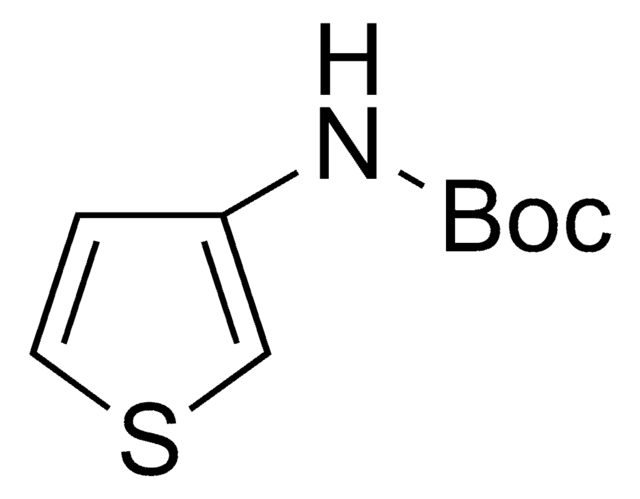M3536
Mycophenolic acid
powder, suitable for cell culture, BioReagent
Sinónimos:
6-(1,3-Dihydro-7-hydroxy-5-methoxy-4-methyl-1-oxoisobenzofuran-6-yl)-4-methyl-4-hexanoic acid, 6-(4-Hydroxy-6-methoxy-7-methyl-3-oxo-5-phthalanyl)-4-methyl-4-hexenoic acid, NSC 129185
About This Item
Productos recomendados
product name
Mycophenolic acid, powder, BioReagent, suitable for cell culture
biological source
Penicillium brevicompactum
Quality Level
product line
BioReagent
form
powder
technique(s)
cell culture | mammalian: suitable
color
white to yellow-white
mp
<143.0 °C
solubility
methanol: 50 mg/mL
mode of action
enzyme | inhibits
storage temp.
2-8°C
SMILES string
COc1c(C)c2COC(=O)c2c(O)c1C\C=C(/C)CCC(O)=O
InChI
1S/C17H20O6/c1-9(5-7-13(18)19)4-6-11-15(20)14-12(8-23-17(14)21)10(2)16(11)22-3/h4,20H,5-8H2,1-3H3,(H,18,19)/b9-4+
InChI key
HPNSFSBZBAHARI-RUDMXATFSA-N
Gene Information
human ... IMPDH1(3614) , IMPDH2(3615)
¿Está buscando productos similares? Visita Guía de comparación de productos
Categorías relacionadas
Application
Biochem/physiol Actions
Caution
Preparation Note
signalword
Danger
Hazard Classifications
Acute Tox. 4 Oral - Aquatic Acute 1 - Aquatic Chronic 1 - Muta. 2 - Repr. 1B - STOT RE 1 Oral
target_organs
Immune system
Storage Class
6.1C - Combustible acute toxic Cat.3 / toxic compounds or compounds which causing chronic effects
wgk_germany
WGK 3
flash_point_f
Not applicable
flash_point_c
Not applicable
ppe
Eyeshields, Faceshields, Gloves, type P3 (EN 143) respirator cartridges
Certificados de análisis (COA)
Busque Certificados de análisis (COA) introduciendo el número de lote del producto. Los números de lote se encuentran en la etiqueta del producto después de las palabras «Lot» o «Batch»
¿Ya tiene este producto?
Encuentre la documentación para los productos que ha comprado recientemente en la Biblioteca de documentos.
Los clientes también vieron
Artículos
Antibiotic kill curve is a dose response experiment in which mammalian cells are subjected to increasing amounts of selection antibiotic
Antibiotic kill curve is a dose response experiment in which mammalian cells are subjected to increasing amounts of selection antibiotic
Antibiotic kill curve is a dose response experiment in which mammalian cells are subjected to increasing amounts of selection antibiotic
Antibiotic kill curve is a dose response experiment in which mammalian cells are subjected to increasing amounts of selection antibiotic
Nuestro equipo de científicos tiene experiencia en todas las áreas de investigación: Ciencias de la vida, Ciencia de los materiales, Síntesis química, Cromatografía, Analítica y muchas otras.
Póngase en contacto con el Servicio técnico















